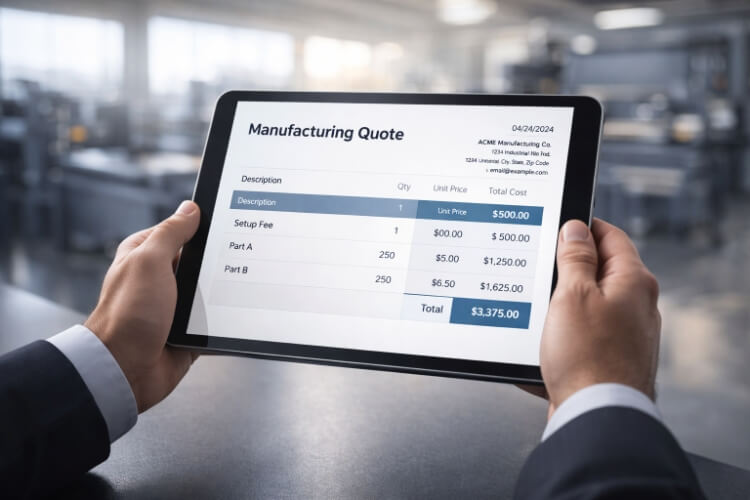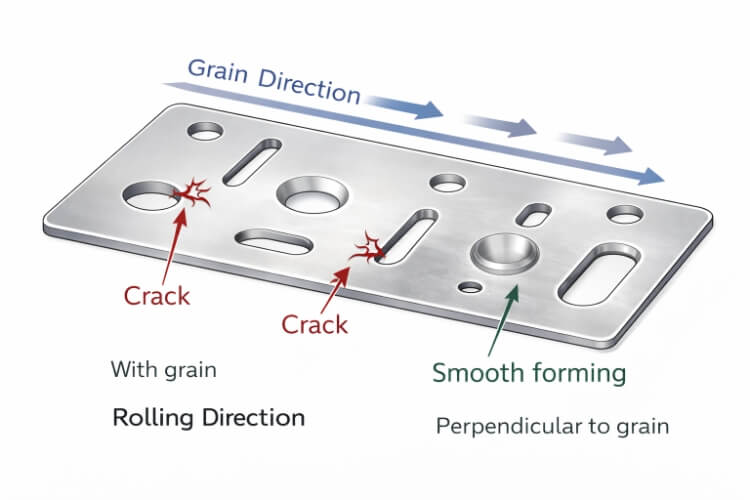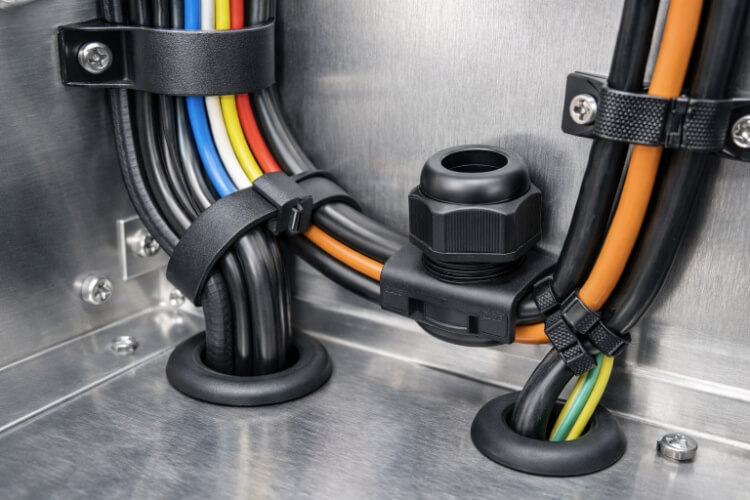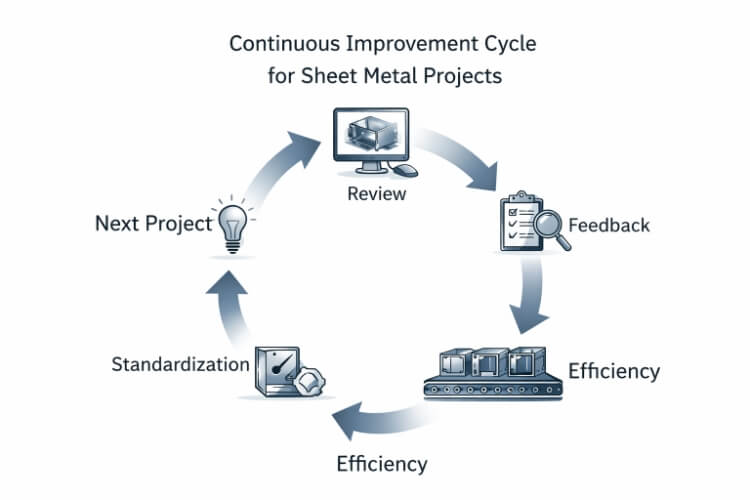Do you need help deciding between 6061 and 7075 aluminum for your next project? You’re not alone. Many engineers and hobbyists face this dilemma. Each alloy offers unique properties, and making the right choice is crucial for the success of your product. In this guide, I’ll break down the key differences between these two popular aluminum alloys, helping you choose the right one for your needs.
6061 aluminum is known for its versatility, good mechanical properties, and weldability. In contrast, 7075 aluminum is renowned for its strength and toughness, ideal for high-stress applications.
Choosing the suitable alloy depends on several factors, including strength requirements, corrosion resistance, and ease of fabrication. Let’s explore these aspects in more detail.
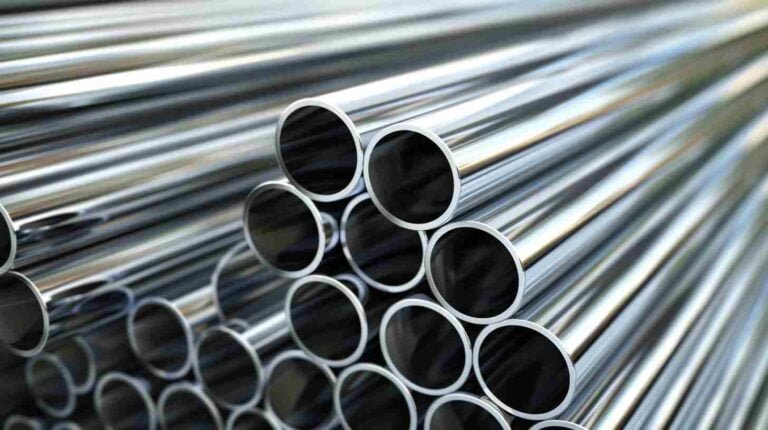
6061 vs 7075 Aluminum: Chemical Composition
Understanding the chemical composition of 6061 and 7075 aluminum alloys is essential for making an informed choice. Each alloy’s unique elements blend contributes to its properties and performance characteristics. Let’s take a closer look at the chemical makeup of these two popular aluminum alloys.
6061 Aluminum Composition
6061 aluminum is an alloy primarily composed of:
- Aluminum (Al): 95.85% – 98.56%
- Magnesium (Mg): 0.8% – 1.2%
- Silicon (Si): 0.4% – 0.8%
- Iron (Fe): 0.0% – 0.7%
- Copper (Cu): 0.15% – 0.4%
- Zinc (Zn): 0.0% – 0.25%
- Titanium (Ti): 0.0% – 0.15%
- Chromium (Cr): 0.04% – 0.35%
- Manganese (Mn): 0.0% – 0.15%
This composition gives 6061 aluminum its excellent strength, corrosion resistance, and workability balance. Magnesium and silicon form magnesium silicide, contributing to its good mechanical properties and ease of fabrication.
7075 Aluminum Composition
7075 aluminum is known for its high strength and is composed of:
- Aluminum (Al): 87.1% – 91.4%
- Zinc (Zn): 5.1% – 6.1%
- Magnesium (Mg): 2.1% – 2.9%
- Copper (Cu): 1.2% – 2.0%
- Chromium (Cr): 0.18% – 0.28%
- Silicon (Si): 0.0% – 0.4%
- Iron (Fe): 0.0% – 0.5%
- Manganese (Mn): 0.0% – 0.3%
- Titanium (Ti): 0.0% – 0.2%
The higher zinc and copper content in 7075 aluminum significantly increases its strength, making it comparable to some steels. However, this also makes welding more challenging and less corrosion-resistant than 6061.
Mechanical Properties
6061 Mechanical Properties
- Stress-Strain Curve Analysis: The stress-strain curve for 6061 aluminum demonstrates its good flexibility and moderate strength. The material exhibits a transparent elastic region followed by a yield point, after which it deforms plastically. The curve shows a gradual increase in stress with strain until it reaches its ultimate tensile strength, around 290 MPa, before necking and eventual fracture.
- Fatigue Strength: 6061 aluminum has a decent fatigue strength, typically around 96 MPa for 5 x 10^8 cycles. This property is crucial for components subjected to cyclic loadings, such as automotive parts and structural elements.
7075 Mechanical Properties
- Stress-Strain Curve Analysis: The stress-strain curve for 7075 aluminum reveals its high strength and relatively low ductility compared to 6061. The curve shows a steep elastic region, indicating its high modulus of elasticity, followed by a higher yield strength around 480 MPa. After yielding, the material deforms plastically but with less elongation before reaching its ultimate tensile strength of about 560 MPa.
- Fatigue Strength: 7075 aluminum exhibits superior fatigue strength, typically around 160 MPa for 5 x 10^8 cycles. This makes it an excellent choice for aerospace, military, and high-performance automotive applications where components are exposed to repetitive stress cycles.
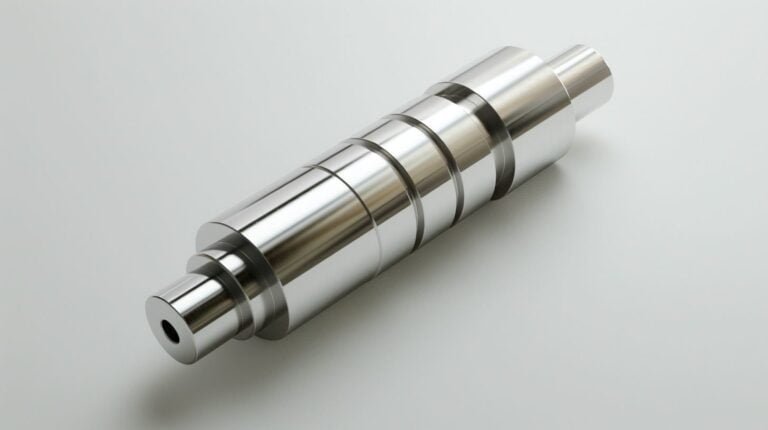
Thermal Properties
6061 Thermal Conductivity and Expansion
- Thermal Conductivity: 6061 aluminum boasts a thermal conductivity of approximately 167 W/m·K. The ability to dissipate heat quickly helps prevent overheating and maintains the stability of components in high-temperature environments.
- Coefficient of Thermal Expansion: The coefficient of thermal expansion for 6061 aluminum is about 23.6 x 10^-6 /°C. This moderate expansion rate is suitable for applications with critical dimensional stability under temperature variations.
7075 Thermal Conductivity and Expansion
- Thermal Conductivity: 7075 aluminum has a slightly lower thermal conductivity, around 130 W/m·K. While not as high as 6061, it still provides good heat dissipation capabilities.
- Coefficient of Thermal Expansion: The coefficient of thermal expansion for 7075 aluminum is approximately 22.0 x 10^-6 /°C. This slightly lower expansion rate compared to 6061 makes 7075 suitable for applications where dimensional stability and minimal thermal distortion are essential.
Critical Differences Between 6061 and 7075 Aluminum
Strength and Hardness Comparison
- Tensile Strength: 6061 aluminum has a tensile strength of approximately 290 MPa, making it suitable for various structural applications. In contrast, 7075 aluminum boasts a significantly higher tensile strength of around 560 MPa, making it ideal for high-stress components in aerospace and military industries.
- Yield Strength: The yield strength of 6061 aluminum is about 240 MPa, providing good resistance to deformation under load. On the other hand, 7075 aluminum offers an impressive yield strength of approximately 480 MPa, ensuring exceptional performance in demanding conditions.
- Hardness: 6061 aluminum has a Brinell hardness of 95 HB, sufficient for many general-purpose applications. However, 7075 aluminum is much more complex, with a Brinell hardness of about 150 HB, making it better suited for applications requiring high wear resistance.
Weight and Density
- Density Comparison: The density of 6061 aluminum is 2.70 g/cm³, while 7075 aluminum is slightly denser at 2.81 g/cm³. Although the difference is minimal, it can impact weight-sensitive applications.
- Impact on Applications: For applications where weight is a critical factor, such as aerospace or automotive industries, the slight increase in density of 7075 aluminum might be offset by its superior strength, allowing for thinner, lighter components that perform better under stress.
Corrosion Resistance
- Corrosion Resistance of 6061: 6061 aluminum excels in corrosion resistance due to its silicon and magnesium content, making it ideal for marine environments and applications exposed to moisture and chemicals.
- Corrosion Resistance of 7075: While 7075 aluminum offers good corrosion resistance, it is less robust than 6061 in harsh environments. Its higher zinc content makes it more susceptible to corrosion, requiring additional protective measures in specific applications.
Machinability and Workability
- Ease of Machining 6061: 6061 aluminum is well-known for its excellent machinability. It can be easily machined to high tolerances and is highly weldable, making it a favorite among fabricators and machinists.
- Ease of Machining 7075: Machining 7075 aluminum can be more challenging due to its higher strength and hardness. It requires specialized tools and techniques to achieve precise results. Additionally, welding 7075 can be difficult and may require pre- and post-weld heat treatments to prevent cracking.
| Property | 6061 Aluminum | 7075 Aluminum |
|---|---|---|
| Tensile Strength | 290 MPa | 560 MPa |
| Yield Strength | 240 MPa | 480 MPa |
| Hardness (Brinell) | 95 HB | 150 HB |
| Density | 2.70 g/cm3 | 2.81 g/cm3 |
| Thermal Conductivity | 167 W/m*K | 130 W/m*K |
| Coefficient of Thermal Expansion | 23.6 x 10^-6 | 22.0 x 10^-6 |
| Corrosion Resistance | Excellent | Good |
| Weldability | Excellent | Fair (requires specialized techniques) |
| Machinability | Excellent | Good (requires specialized tools) |
| Fatigue Strength | 96 MPa (for 5 x 10^8 cycles) | 160 MPa (for 5 x 10^8 cycles) |
| Cost | Lower | Higher |
Cost Considerations
Cost of Raw Material
- Price Comparison: The cost of 6061 aluminum is generally lower compared to 7075 aluminum. This price difference is primarily due to the alloying elements and the manufacturing processes. 6061 is more affordable, making it a popular choice for a wide range of applications where cost efficiency is essential.
- Availability in the Market: 6061 aluminum is widely available and commonly stocked by suppliers due to its extensive use in various industries. In contrast, 7075 aluminum, while also available, is less commonly stocked and may sometimes require special orders.
Cost of Processing and Machining
- Processing Costs: Processing costs for 6061 aluminum are typically lower than for 7075. 6061 is easier to work with during forming, bending, and other fabrication processes due to its flexibility and lower strength.
- Machining Costs: Machining 6061 aluminum is generally more cost-effective than machining 7075. 6061 is known for its excellent machinability, allowing for faster cutting speeds and reduced tool wear. On the other hand, 7075 aluminum, with its higher strength and hardness, can be more challenging to machine.
Choosing Between 6061 and 7075 Aluminum
Factors to Consider
Application Requirements:
When choosing between 6061 and 7075 aluminum, consider the specific requirements of your application. If you need a material that offers a good balance of strength, corrosion resistance, and workability, 6061 is often the best choice. However, if your application demands maximum strength and can handle more challenging fabrication processes, 7075 may be more suitable.
Budget Constraints:
Budget is always a critical factor. 6061 aluminum is generally more affordable than 7075, making it a cost-effective option for many projects. If your budget is tight, 6061 can provide excellent performance without breaking the bank. On the other hand, if your project justifies the higher cost due to the need for superior strength, investing in 7075 aluminum could be worthwhile.
Environmental Conditions:
The operating environment of your product is another essential consideration. 6061 aluminum excels in corrosion resistance, making it ideal for applications exposed to moisture, chemicals, or marine environments. While 7075 aluminum also offers good corrosion resistance, it’s less robust than 6061 and might require additional protective measures in harsh conditions.
Conclusion
Choosing between 6061 and 7075 aluminum requires careful consideration of your project’s specific needs and constraints. Both alloys offer unique advantages and are well-suited for different applications. By understanding the key differences and evaluating your requirements, you can select the alloy that best meets your project goals and ensures success.
Do you need a reliable sheet metal parts manufacturer? Shengen is the place to go. We specialize in sheet metal laser cutting, bending, surface finish, and CNC Machining. Reach out to Shengen Today and seek help from professionals!
FAQs
Which aluminum alloy is better for aerospace applications?
7075 aluminum is generally better suited for aerospace applications due to its high strength-to-weight ratio and excellent fatigue resistance. These properties make it ideal for critical components like aircraft wings, fuselage frames, and landing gear, where performance under high stress is crucial. While 6061 can also be used in aerospace applications, it is typically reserved for less demanding components.
How does the cost of 6061 compare to 7075?
6061 aluminum is generally more affordable than 7075 aluminum. This price difference is due to the alloying elements and the processing requirements of each alloy. 6061’s lower cost makes it a cost-effective choice for many applications, whereas 7075’s higher cost is justified by its superior strength and performance in high-stress environments.
Can 7075 aluminum be welded like 6061?
Welding 7075 aluminum is more challenging than welding 6061. 7075’s higher zinc content increases the risk of cracking during welding, requiring specialized techniques and often pre- and post-weld heat treatments to achieve successful welds. In contrast, 6061 aluminum is known for its excellent weldability using standard welding techniques, making it easier to work with in fabrication processes.
More Resources:
6061 aluminum properties – Source: Wikipedia
Mechanical properties of aluminum alloys – Source: Engineeringtoolbox
Processing costs of aluminum alloys – Source: Procurement resource
Hey, I'm Kevin Lee

For the past 10 years, I’ve been immersed in various forms of sheet metal fabrication, sharing cool insights here from my experiences across diverse workshops.
Get in touch

Kevin Lee
I have over ten years of professional experience in sheet metal fabrication, specializing in laser cutting, bending, welding, and surface treatment techniques. As the Technical Director at Shengen, I am committed to solving complex manufacturing challenges and driving innovation and quality in each project.

